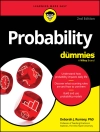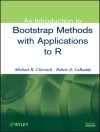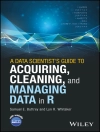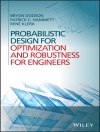APPLIED BIOSTATISTICS FOR THE HEALTH SCIENCES
In this newly revised edition of Applied Biostatistics for the Health Sciences, accomplished statistician Dr. Richard Rossi delivers a robust and easy-to-understand exploration of statistics in the context of applied health science and biostatistics. The book covers sample design, logistic regression, experimental design, survival analysis, basic statistical computation, and many more topics with a strong focus on the correct use and interpretation of statistics. The author also explains how to assess the quality of observed data, how to collect quality data, and the use of confidence intervals in conjunction with hypothesis and significance tests.
* A thorough introduction to biostatistics, including explanations of fundamental concepts like populations, samples, statistics, biomedical studies, and data set examples
* A comprehensive exploration of population descriptions, including qualitative and quantitative variables, multivariate data, measures of dispersion, and probability
* Practical discussions of random sampling, summarizing random samples, and the measurement of the reliability of statistics
* In-depth examinations of confidence intervals, statistical hypothesis testing, simple and multiple linear regression, and experimental design
Perfect for health science and biostatistics students and professors at the upper undergraduate and graduate levels, Applied Biostatistics for the Health Sciences is also a must-read reference for practitioners and professionals in the fields of pharmacy, biochemistry, nursing, health care informatics, and the applied health sciences.
Über den Autor
Richard J. Rossi, Ph D, is Director of the Data Science Program, former Director of the Statistics Program, and former Head of Mathematical Sciences at Montana Technical University, USA. He is author of Theorems, Corollaries, Lemmas, and Methods of Proof and Mathematical Statistics: An Introduction to Likelihood Based Inference, both published by Wiley. His research focuses on nonparametric density estimation, finite mixture models, and computational statistics.












